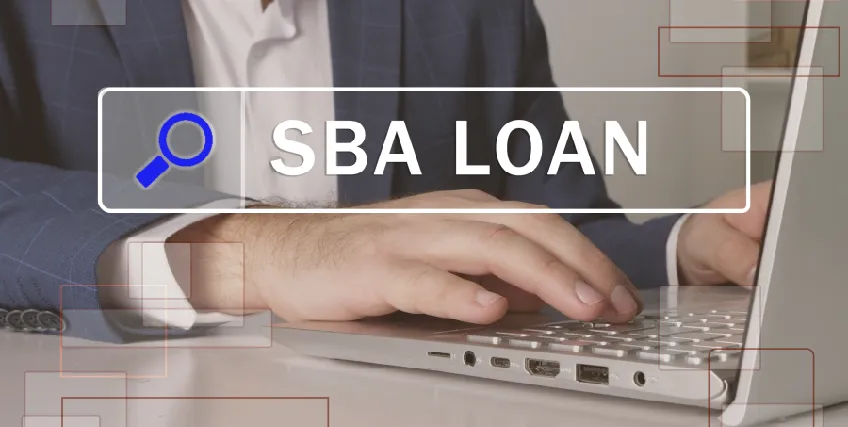
Cash flow financing is a type of loan where a lender provides a loan based on the company’s projected cash flows, offering an alternative for businesses that may lack traditional collateral. Businesses that practice careful cash flow management are usually approved for this type of financing.
This guide can help you decide if a Cash flow loan makes sense for you and, if so, how to get the right one.
The Basics of Cash Flow Financing
Cash flow financing leverages the future cash flow of a business as an indicator that it can pay back the loan. Cash flow loans are attractive to small businesses that generate a large amount of cash from their sales but don’t have much in the way of physical assets, such as vehicles or equipment, which would typically be used as collateral to back the loan.
If a small business has significant positive cash flow, it signals to lenders that it generates enough cash from its revenue to meet its financial obligations. Negative cash outflow, usually due to low sales or high operating expenses, indicates an inability to repay the financing. Banks and other creditors carefully review a company’s cash flow to figure out how much credit to extend.
Cash flow financing can be either short-term or long-term, providing flexibility to serve many business needs. Small businesses use funds from these loans to manage financial emergencies, as working capital, to take advantage of opportunities, or make significant purchases.
Pros and Cons of Cash Flow Loans
Pros
- Relatively fast source of funding. If you need cash quickly, some lenders offering cash flow financing can approve applications and deposit funds in your business bank account in less than one day. Be aware that traditional loan providers and lenders may take weeks or even months to issue financing.
- Simple application process. Alternative lenders usually issue cash flow financing. These types of lenders typically provide a streamlined online application process. You will most likely complete and submit a simple application in less than an hour, with minimal documentation required.
- Flexible requirements. Cash flow lenders heavily weigh your historical and projected revenue and expenses when reviewing your application. They’re typically more flexible than traditional business lender requirements. Unlike more standard loans, startups, businesses with bad credit, and those with less than stellar financial health may qualify.
- No physical collateral is required. You don’t need to put up physical collateral, such as equipment, real estate, machinery, or vehicles, to back a cash flow loan. Asset-based lenders are different. They will require physical property as loan collateral.
Cons
- Cash flow financing is expensive. Because of their less diligent underwriting process and no collateral requirements, cash flow loans are riskier than many other types of business loans. To mitigate this risk, lenders typically charge higher interest rates and fees. They can have interest rates ranging from 10 to 99% annual percentage rate (APR).
- Frequent regular payments. Cash flow loans usually come with short terms and require frequent repayments, often daily or weekly, instead of monthly. The payment schedule can have a significant impact on cash flow, whereas other lending products like a business credit card or line of credit could give more flexible payments.
- Personal guarantee requirements. You won’t need to secure your cash flow loan with physical business collateral. However, most lenders will require you to sign a personal guarantee, which means you’ll be forced to repay your loan with your own assets if your business can’t make payments.
How to get a cash flow loan
Follow these steps to get the cash flow financing your business needs.
- Determine your financing needs. Figure out how you will use your loan, how much cash you need, and how quickly you need access to funds. You should be able to use your bookkeeping or accounting software to figure out how much money you need.
- Evaluate your business cash flow and other factors. Look closely at your historical revenue, projected revenue, cash position, liabilities, and other financial data. Additionally, be sure check your credit score, even though it may not be as significant a factor as for more traditional loans.
- Research and compare lenders. Check out several online lenders to find the best financing option for your small business. Consider interest rates, repayment terms, funding speed, the application process, customer service, lender reputation, and ratings and reviews.
- Complete and submit your application. Cash flow lenders usually provide simple online applications. They can generally be completed in less than an hour. You shouldn’t need too much documentation, but you may be asked to provide the following:
- Personal and business tax returns
- Statement of cash flows, including accounts receivable, accounts payable and net income
- Personal and business bank statements
- Business financial statements (e.g., profit and loss statement, income statement, or a balance sheet)
- Credit history
Final Thoughts
Cash flow financing offers a valuable solution for businesses seeking to manage their operational needs and seize growth opportunities without relying solely on traditional collateral. By leveraging projected cash inflows, companies can access the business financing necessary for day-to-day operations, inventory purchases, and expansion efforts.
FAQs about Cash Flow Financing
How do small businesses document cash flow for loans?
Small businesses document cash flow for loans by preparing financial statements such as income statements, balance sheets, and cash flow statements.
How do businesses project cash flows?
Businesses project cash flows by estimating future revenues and expenses based on historical data and growth expectations.
What are cash flow loans?
Cash flow loans are a type of financing provided to businesses based on their projected future cash inflows rather than collateral.
What’s the difference between a cash-backed and asset-backed loan?
A cash-backed loan is secured by the borrower’s cash deposits acting as the collateral. An asset-backed loan is secured by physical assets like real estate, equipment, or inventory. Both are typically term loans.
Can you use cash flow financing for small business operations?
Yes, cash flow financing can be used for small business operations. It can be helpful for enterprises that have strong revenue streams but limited tangible assets.




